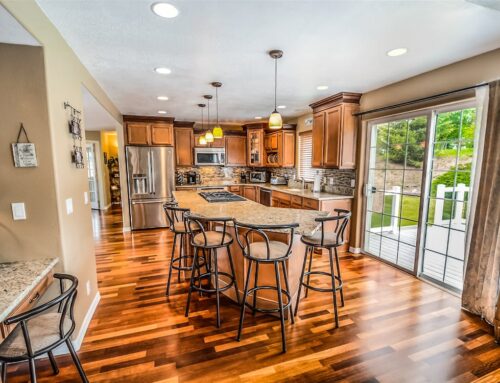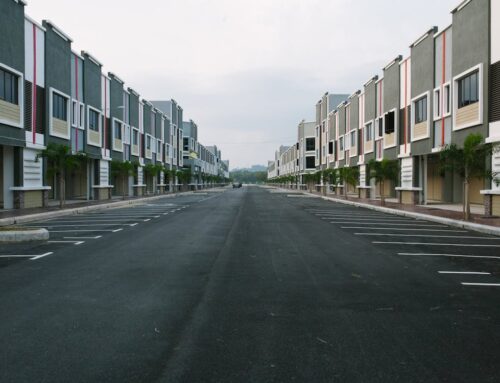It doesn’t take a real estate expert to notice that the housing market is remaining strong, despite what people predicted at the beginning of 2023. By now, we were supposed to see major declines in pricing between 10-20%. Instead, prices have either remained the same or have even gone up. Experts are scrambling to figure out if and when prices will go down but the fact is that the economy remains strong and home values are not going down, despite increases in interest rates throughout the year.
While the rate hikes are expected to lower the cost of housing, the fact is that it has not done so, especially for homes that are in liveable conditions and require less than $50,000 of repair for needed upgrades including windows, roof, air conditioning units and so forth. If those upgrades are not needed or reasonable, homeowners are getting near the asking price for their property, even in less desirable areas. Some real estate experts believe that between new development and higher prices, those less desirable areas of cities will soon be turned around as demand for the land is skyrocketing.
Why Home Prices Are Still Strong
The reality is that many who were waiting for home prices to fall by the middle of 2023 may be waiting a bit longer. In fact, projects are now pointing to 2024 and beyond for a potential drop in prices. One of the key reasons has to do with the fact that most homeowners are actually comfortably able to cover the cost of their mortgage. They are not struggling and upside down in their mortgage as we saw with the market crash of the 2000s. Here are some other reasons why prices remain at record highs:
- Inventory: The first and most important reason why prices have remained high is because of simple supply and demand. There is not enough inventory to satisfy those who want to buy a house and even though some properties have to wait for a couple of months to get a legitimate offer, the fact is the lack of available homes is keeping prices and values high. In fact, in many parts of the country, homeowners are getting near the asking price and that trend does not appear to be slowing down any time soon.
- Consumer demand: Along with low inventory, more and more people are aware of the benefits of buying versus renting. Combine that with how easy it is to browse homes via popular real estate apps, and consumers are constantly looking for a good opportunity. The increase in prices does not scare consumers as they see it as a way to lock in their living costs for years and invest in their future. People between the ages of 25 and 40 are desperate to find a home rather than lose their monthly payments to rent where they cannot build equity and have no long-term value in the property.
- Rent: When home prices and values are up, rent is usually a big reason. Because the cost of rent is at record highs for most areas, consumers are not intimidated by home prices. Buying a 3 bedroom house will cost the same per month as renting a 2 bedroom apartment in the same area. When you consider that factor, it’s easy to see why consumers would rather own property rather than continue to pay for a smaller living area and not have any equity built.
- Lack of foreclosures: One thing that sparked the crash of the 2000s was the number of foreclosures that occurred. That is not happening now and in many cases, foreclosures are not even a possibility as property owners can easily unload a property for the same as what their loan costs, or even turn a profit. This includes condos where the rising cost of HOAs has led many owners to sell, even if they are not turning much of a profit. The reason is that they will be able to take the money they have left over from the sale and put it towards a down payment on a new property or to cover the cost of rent for a while.
- Investors: People have become very informed on the dealings of real estate and that education has led to a record number of investors. There are more people who own multiple properties than in past years and many of those owners are able to easily find renters or get a reasonable profit on the sale of their property. Add to that the fact that home prices may be higher in the next five to ten years and it’s easy to see why long-term investors are not concerned about the prospect of paying a bit more now, knowing that they can cover the monthly costs with renters and then sell the property for a large gain once the market is where they want it to be.
Every property is different. However, most buyers understand the challenges that come with buying a property with inflated prices. The fact that values have not gone down despite the increase in interest rates has motivated many to buy, feeling that the values will not decrease significantly in the near future, and if it does, they can simply refinance and get a lower rate, saving them thousands of dollars a year.
What Can Your Realtor Do For You
When working with a realtor, whether you are buying or selling a home, he or she has the ability to help you understand the market you are in, the area you are in and what to expect as far as a good value. For example, if you are not sure what to price your house at, your realtor can help you find a realistic number, something that gives you wiggle room if you need to lower it to meet an offer, but not too high to scare away any serious buyers. Some people are pricing themselves too high right now and it’s led to them having to wait months or longer for a reasonable offer. Once buyers see that you’ve lowered the price multiple times, getting near your new asking price is very difficult.
You should never go into buying or selling without the assistance and guidance of an experienced realtor. They can help you navigate these uncharted waters and ensure you are getting the best value on a property. Local realtors also know what to expect as far as challenges with taxes, insurance, and more which is ideal if you are not familiar with the area and can greatly benefit from that local experience.





